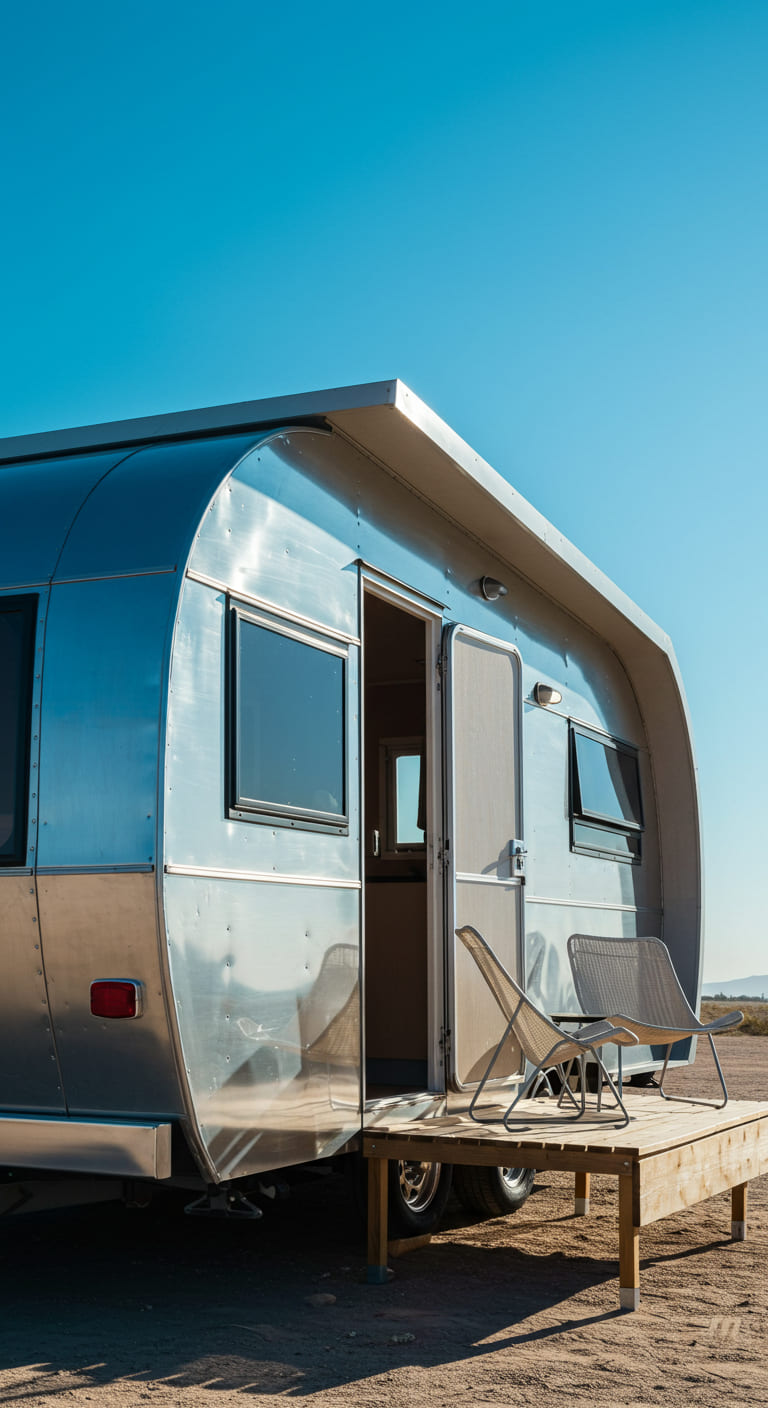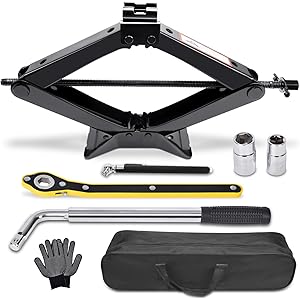As I delve into the world of mobile homes and trailers, I find myself navigating a complex landscape of terminology, design, and lifestyle choices. The question that often arises is: “Are mobile homes the same as trailers?” This inquiry opens up a dialogue that encompasses the history, definitions, and perceptions surrounding these unique living spaces. In this article, I aim to unravel the truth and provide you with a comprehensive understanding of mobile homes and trailers, along with insights that may help you in making informed decisions about your housing options.
Understanding the Definitions
To begin, let’s clarify what we mean by mobile homes and trailers. The terms are often used interchangeably, but there are significant distinctions between them that can impact your choice and experience as a homeowner.
What is a Mobile Home?
A mobile home, as defined by the United States Department of Housing and Urban Development (HUD), refers to a factory-built home that is transported to a site and installed. These homes are built to meet federal standards and are often referred to as manufactured homes. Mobile homes were originally constructed prior to 1976, the year HUD established new regulations governing their construction and safety.
What is a Trailer?
On the other hand, the term “trailer” typically refers to a non-permanent structure that can be towed. Trailers are often associated with recreational vehicles (RVs) or travel trailers that people use for vacations and outdoor adventures. While some trailers can be converted into living spaces, they are generally not designed for long-term habitation.
The Evolution of Mobile Homes and Trailers
To truly grasp the differences, I think it’s essential to explore the evolution of these housing options. Historically, both mobile homes and trailers were designed for mobility, but their purposes diverged over time.
The Rise of Mobile Homes
In the post-World War II era, mobile homes gained popularity as affordable housing solutions for families. They offered a sense of homeownership without the hefty price tag of traditional houses. As federal regulations evolved, so did the construction standards, leading to better quality and safety.
The Changing Face of Trailers
Trailers, particularly travel trailers, have also seen significant changes. In the past, they were primarily utilitarian, designed for short-term stays. Today, many travel trailers are equipped with luxurious amenities, making them suitable for extended travel and living. However, they still lack the permanent foundation and construction standards associated with mobile homes.
Key Differences Between Mobile Homes and Trailers
While both mobile homes and trailers share the idea of mobility, the differences in design, purpose, and regulations are crucial to understand. Here are some key distinctions:
- Construction Standards: Mobile homes are built to HUD standards, ensuring safety and quality. Trailers typically do not meet these standards.
- Foundation: Mobile homes are placed on permanent foundations, while trailers are often temporary and can be moved easily.
- Usage: Mobile homes are designed for long-term habitation, whereas trailers are usually for short-term use.
- Financing: Buying a mobile home often allows for traditional mortgage options, whereas trailers may require different financing methods.
- Resale Value: Mobile homes tend to retain their value better than trailers, which depreciate quickly.
Living in a Mobile Home: Pros and Cons
Having spent some time researching and speaking with those who live in mobile homes, I’ve compiled a list of pros and cons that might help you in your decision-making process.
Pros of Mobile Home Living
- Affordability: Mobile homes are generally more affordable than traditional houses, making homeownership accessible to more people.
- Community: Many mobile home parks foster a strong sense of community, providing social opportunities and support.
- Flexibility: The mobility of these homes allows for relocation if life circumstances change.
- Lower Maintenance Costs: Mobile homes often have lower maintenance costs due to their simpler construction.
- Energy Efficiency: Modern mobile homes are designed with energy efficiency in mind, leading to lower utility bills.
Cons of Mobile Home Living
- Depreciation: Unlike traditional homes, mobile homes can depreciate in value over time.
- Limited Space: Many mobile homes offer less living space compared to traditional houses.
- Financing Challenges: Obtaining financing for a mobile home can be more complicated than securing a mortgage for a traditional home.
- Park Regulations: Living in a mobile home park may come with restrictions and regulations that can be limiting.
- Resale Difficulties: Selling a mobile home can be challenging due to the stigma associated with them.
Living in a Trailer: Pros and Cons
Similarly, I’ve gathered insights on the pros and cons of living in a trailer, particularly focusing on travel trailers and RVs.
Pros of Trailer Living
- Adventure: Living in a trailer allows for a nomadic lifestyle, perfect for those who love to travel and explore.
- Lower Costs: Trailers can be less expensive to purchase and maintain compared to traditional homes.
- Convenience: Trailers offer the convenience of mobility, allowing you to change your location with ease.
- Community: Trailer parks and campgrounds often foster a sense of community among residents.
- Minimalism: Trailer living encourages a minimalist lifestyle, which can lead to less stress and more freedom.
Cons of Trailer Living
- Space Limitations: Trailers often have limited living space and storage options.
- Comfort Level: Many trailers lack the comfort and amenities of a traditional home.
- Weather Vulnerability: Trailers may not provide the same protection from weather elements as a traditional home.
- Limited Resale Value: Trailers typically depreciate quickly and can be difficult to sell.
- Temporary Nature: Living in a trailer can feel less stable, particularly for families seeking permanence.
Comparative Case Studies
To further illustrate the differences between mobile homes and trailers, I’ve researched a few case studies that highlight real-life experiences.
Case Study 1: The Family in a Mobile Home
Consider the Johnson family, who moved into a mobile home park after selling their traditional house. They found their mobile home to be spacious and affordable, allowing them to save money for their children’s education. The community in the park offered support and social activities, making their transition smooth. Despite some initial concerns about depreciation, they have enjoyed a comfortable lifestyle and appreciate the freedom to relocate if needed.
Case Study 2: The Adventurers in a Trailer
On the other hand, the Smiths decided to invest in a travel trailer to explore the country full-time. They embraced the nomadic lifestyle, visiting national parks and enjoying the freedom that comes with mobility. However, they often found themselves struggling with limited space and the challenges of finding suitable camping spots. Their experience has been enriching, but they also acknowledge the trade-offs of living in a trailer, such as the lack of stability and comfort.
The Perception of Mobile Homes and Trailers
One of the most significant barriers to mobile home living is the stigma that surrounds it. Many people associate mobile homes with lower socioeconomic status or transient lifestyles. However, as I’ve discovered, this perception is changing. With the rise of modern manufactured homes that offer stylish designs and energy-efficient features, more individuals are recognizing the value and comfort that mobile homes can provide.
Similarly, trailers have often been viewed as temporary solutions, primarily for vacationing. Yet, the increasing popularity of full-time trailer living is shifting this narrative. More people are embracing the freedom that comes with trailer life, challenging the outdated stereotypes.
Making the Right Choice for You
Ultimately, the choice between a mobile home and a trailer depends on your lifestyle, needs, and preferences. Here are some questions to consider:
- Are you looking for a long-term living solution or a temporary vacation option?
- How important is community and social interaction in your living situation?
- What is your budget for purchasing and maintaining a home?
- Do you prefer the stability of a permanent foundation or the freedom of mobility?
- What amenities and comfort levels are essential for your lifestyle?
Conclusion: Join the Discussion!
In conclusion, understanding the differences between mobile homes and trailers is vital for making an informed decision about your living situation. While both offer unique advantages and challenges, they cater to different lifestyles and preferences. As society evolves, so do the perceptions of these housing options, making it essential for us to engage in open discussions about their value and potential.
I encourage you to share your experiences and thoughts on mobile homes and trailers in the comments section below! Have you lived in either? What was your experience like? Your insights can help others navigate this important decision.
FAQ
Are mobile homes and trailers the same thing?
No, mobile homes are factory-built homes that meet HUD standards for long-term living, while trailers are typically non-permanent structures often used for short-term stays or travel.
Can I get a mortgage for a mobile home?
Yes, many lenders offer financing options for mobile homes, allowing for traditional mortgage agreements.
Do mobile homes appreciate in value?
While mobile homes can depreciate, modern manufactured homes have shown potential for appreciation, especially in desirable locations.
Is trailer living suitable for families?
While trailer living can be challenging for families due to space limitations, some families successfully embrace the lifestyle and enjoy the adventure it brings.
How do I choose between a mobile home and a trailer?
Consider your lifestyle needs, budget, and preferences for mobility versus stability when making your choice.
Thank you for reading! If you found this article helpful, please consider signing up for our newsletter for more insights on housing options and share it with friends and on social media!
Scissor Car Jack 3 Ton (6610 lbs) Tire Changing Kit with Lug Wrench - Emergency Kit for Car, SUV, MPV
$37.83 (as of November 15, 2025 07:52 GMT -03:00 - More infoProduct prices and availability are accurate as of the date/time indicated and are subject to change. Any price and availability information displayed on [relevant Amazon Site(s), as applicable] at the time of purchase will apply to the purchase of this product.)
Sign up for our newsletter and stay up to date with exclusive news
that can transform your routine!





